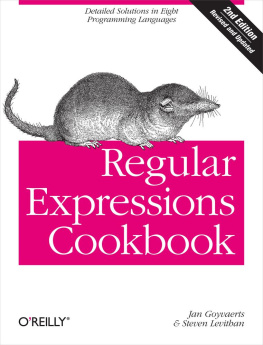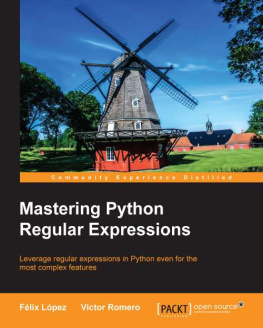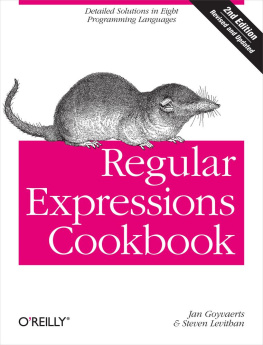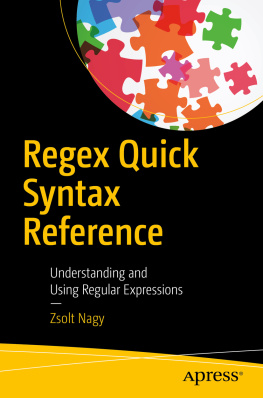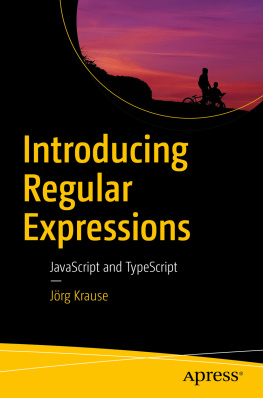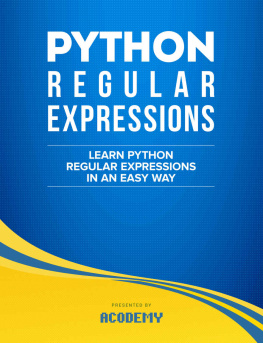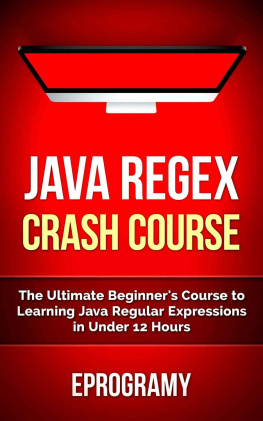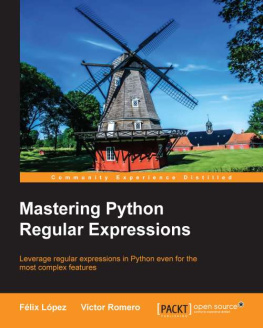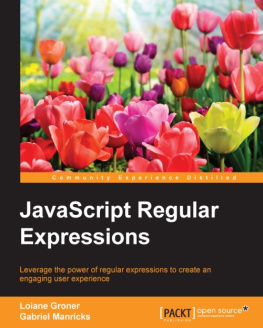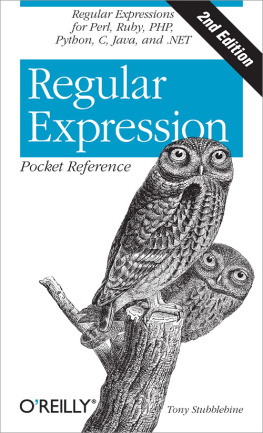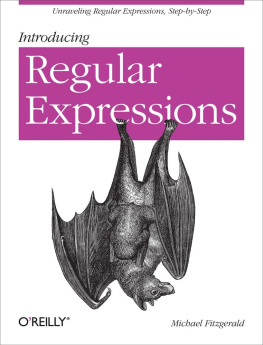Jan Goyvaerts - Regular Expressions Cookbook
Here you can read online Jan Goyvaerts - Regular Expressions Cookbook full text of the book (entire story) in english for free. Download pdf and epub, get meaning, cover and reviews about this ebook. year: 2012, publisher: OReilly Media, genre: Computer. Description of the work, (preface) as well as reviews are available. Best literature library LitArk.com created for fans of good reading and offers a wide selection of genres:
Romance novel
Science fiction
Adventure
Detective
Science
History
Home and family
Prose
Art
Politics
Computer
Non-fiction
Religion
Business
Children
Humor
Choose a favorite category and find really read worthwhile books. Enjoy immersion in the world of imagination, feel the emotions of the characters or learn something new for yourself, make an fascinating discovery.
- Book:Regular Expressions Cookbook
- Author:
- Publisher:OReilly Media
- Genre:
- Year:2012
- Rating:4 / 5
- Favourites:Add to favourites
- Your mark:
Regular Expressions Cookbook: summary, description and annotation
We offer to read an annotation, description, summary or preface (depends on what the author of the book "Regular Expressions Cookbook" wrote himself). If you haven't found the necessary information about the book — write in the comments, we will try to find it.
Take the guesswork out of using regular expressions. With more than 140 practical recipes, this cookbook provides everything you need to solve a wide range of real-world problems. Novices will learn basic skills and tools, and programmers and experienced users will find a wealth of detail. Each recipe provides samples you can use right away.
This revised edition covers the regular expression flavors used by C#, Java, JavaScript, Perl, PHP, Python, Ruby, and VB.NET. Youll learn powerful new tricks, avoid flavor-specific gotchas, and save valuable time with this huge library of practical solutions.
- Learn regular expressions basics through a detailed tutorial
- Use code listings to implement regular expressions with your language of choice
- Understand how regular expressions differ from language to language
- Handle common user input with recipes for validation and formatting
- Find and manipulate words, special characters, and lines of text
- Detect integers, floating-point numbers, and other numerical formats
- Parse source code and process log files
- Use regular expressions in URLs, paths, and IP addresses
- Manipulate HTML, XML, and data exchange formats
- Discover little-known regular expression tricks and techniques
Jan Goyvaerts: author's other books
Who wrote Regular Expressions Cookbook? Find out the surname, the name of the author of the book and a list of all author's works by series.

